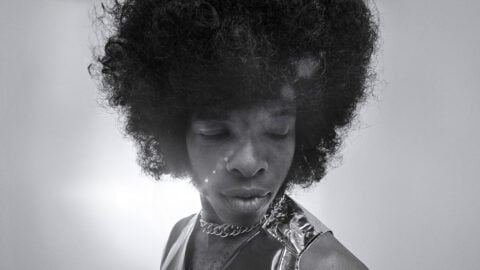Review: West of Memphis
Directed by Amy Berg (Deliver Us from Evil, 06), West of Memphis chronicles the plight of Damien Echols, Jason Baldwin, and Jesse Misskelley Jr.—collectively nicknamed the “West Memphis Three”—who were teenagers in 1994 when they were convicted of brutal murders. Financed by the director Peter Jackson and his partner Fran Walsh, the film tells a tale of compounding injustices. When three missing 8-year-old boys were found dead, hogtied, and mutilated in a riverbed in a Tennessee town, the police and prosecution characterized the crime as an act of a cult or a “satanic” murder. After 12 hours of interrogation without an attorney—only a fraction of it actually recorded—Misskelley, who is mentally challenged, confessed to aiding Echols and Baldwin in the killings, but as West of Memphis demonstrates, the confession was riddled with contradictions. Echols was sentenced to death; the other two to life in prison.
In 2005 Walsh began exchanging emails with Lorri Davis, Damien Echols’ wife and prime advocate. As Jackson explains in the film, he and Walsh bankrolled a new set of lawyers, criminal profilers, and private detectives to help exonerate the trio. Produced by both couples, West of Memphis documents the findings and ramifications of that investigation, using the women’s emails as a refrain that binds the various interviews together and gives the film its rhythm.
The film begins by establishing the backstory of the crime and trials—including footage of the disturbing 1993 crime scene—and then picks apart the prosecution’s case, revealing slipshod forensic work, subsequently recanted testimony, and overzealous prosecutors morally unencumbered by the absence of evidence. Alternating between talking heads—Jackson, Echols, former FBI profiler John Douglas, and Pearl Jam’s Eddie Vedder—and archival footage of the crime scene, the trials, and interviews with the victims’ parents, West of Memphis paints a portrait of gross injustice set to a meditative score by Nick Cave and Warren Ellis. Repeated images of a wind-whipped, tattered American flag drive home the point.

In 1996, an HBO documentary entitled Paradise Lost: The Child Murders at Robin Hood Hills (directed by Joe Berlinger and Bruce Sinofsky) brought national attention to the case, both from the volunteers who flocked to the town—launching what West of Memphis describes as “the first crowd-sourced criminal investigation”—and from celebrities like Jackson, Vedder, Johnny Depp, Henry Rollins, Patti Smith, Iggy Pop, and Natalie Maines of the Dixie Chicks, who donated money and called attention to the cause of freeing the Memphis Three.
At the end of Berg’s film, the trio are released from prison in a deal with prosecutors, although they are not exonerated. Describing the case as “a tragedy on all sides,” the judge commends those who advocated for their release. Like the HBO documentary, much of West of Memphis is an object lesson in how the media can work as a productive, even vital check on the judiciary. But this film ventures beyond attempting to exonerate Echols, Baldwin, and Misskelley to accusing Terry Hobbs, the stepfather of one of the murdered children, of being the real culprit behind the crimes, and assembles an admixture of hearsay and DNA evidence obtained by experts hired by Jackson and Walsh.
West of Memphis does little to prepare the audience for its disorienting shift from defense to prosecution. Above all, the film feels like a means to an end, a project more concerned with trying to wedge itself into the external reality it depicts than with cultivating itself as a film. This strategy in turn risks making the viewer feel less inspired than used, more like a party to the film’s efforts than a willing witness.

Breaking the documentary convention of projecting impartiality and almost coming off as a case of celebrities picking on a poor private citizen, West of Memphis begins to denature as it turns accusatory. It errs in not better expressing the rhetorical coordinates of its accusations, that the filmmakers may be channeling the voice of Damien Echols (and not, for instance, Eddie Vedder or Peter Jackson) who despite his release from prison remains a convicted felon and victim of the legal system; only if the state were to reopen the case with a different defendant could his conviction be overturned.
West of Memphis is most interesting as a case study in the ethics of engaged filmmaking, raising thorny questions which it does not address. Is it right for a film to name a private citizen as a sexual predator and murderer when no such charges have been leveled by the state or acknowledged by the courts? Or do the latter two facts alone justify the accusation?







